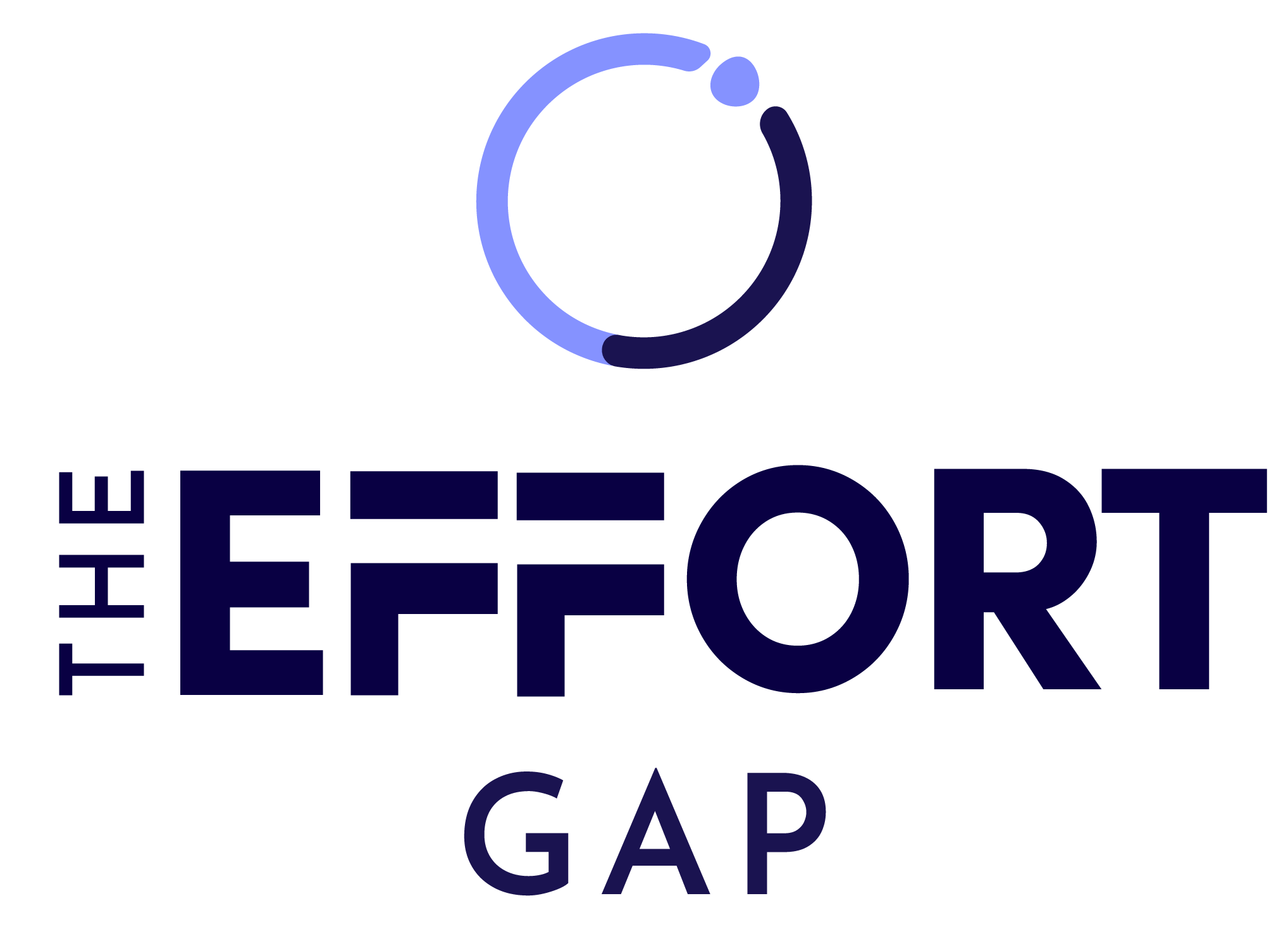At the Effort Gap, you will find an approach to setting personal growth goals that involves not just introspection but also action. It’s an approach that dispels three common misconceptions about personal growth.
Misconception #1: Make personal growth goals all about you.
Despite its name, personal growth is not about you. Often overlooked in setting personal growth goals are two fundamental pillars of human wellness: connection and community.
Personal growth isn’t about you. This is about becoming a better version of yourself within the context of your relationships and communities. Beyond the development of self-awareness, to truly grow is to embrace a cycle of reflection and effort, allowing you to:
-
- Consider what you discover about yourself to gain a deeper understanding of other humans.
-
- Use the insights gleaned from self-awareness to guide your attitude, behavior, and choices.
-
- Decipher external stressors from personal shortcomings or relational challenges.
-
- Understand your desires, fears, limitations, beliefs, and values. Then, communicate plainly in those terms.
-
- Practice giving grace and compassion to yourself and others.
-
- Know the difference between your tendencies and your identity.
-
- Believe that you can learn new skills and figure things out.
-
- Recognize and mitigate self-defeating behavior patterns.
Misconception #2: Growth is about gaining more knowledge.
Setting personal growth goals means cutting through the noise to rekindle our humanness. Humanness consists of a variety of uniquely human traits, like building meaningful relationships, engaging in complex problem-solving, communicating emotions, and pursuing various forms of expression. Over time, these core abilities are eroded by factors like societal conditioning, emotional suppression, and self-sabotaging mindsets like comparison, perfectionism, self doubt, and hyper-analysis. These conditions lead to reductions in effort and a disconnection from what it means to be human.
To be stripped of our humanness is to lose touch with the primal aspects of our nature that guide our behaviors, emotions, and interactions. As a substitute for our natural instincts, we default to operating from the ego and the logical functions of our minds. But life rarely unfolds from a straightforward logic, and genuine connections cannot form from a place of ego. The disconnect between a desire for straightforward logic and the intricacies of social life makes us susceptible to anxiety and helplessness.
While logical reasoning is undoubtedly important, overemphasizing it within a complex, amorphous, and nuanced world results in a perpetual state of disappointment and frustration. Negative self-talk, which spikes when experiencing disappointment or frustration, suggests that you are not enough. It implies that you must acquire more of something (more credentials, more time, more confidence, more knowledge) before exerting any real effort. Rather than accumulating more of something, growth necessitates reduction: releasing, simplifying, and finding your way back to your humanness.
Within each of us lies an intuitive wisdom that outperforms the compiling of information. Personal growth restores a harmonious balance of logic and instincts.
Misconception #3: Being successful is the goal of personal growth.
The fast-paced and competitive nature of American culture contributes to increasing rates of loneliness and disconnection. A 2019 Harvard study found that rates of loneliness in the U.S. have doubled since the 1980s, with nearly one in five people reporting feelings of social isolation. The relentless pursuit of success, often defined by material gains and external recognition, leads us to prioritize productivity over well-being. The constant drive to excel leaves little room for introspection, resulting in detachment from self. Detachment from self inhibits our ability to connect and contribute. Then there’s the pressure to maintain a facade of strength and positivity, which discourages discussion about the realness of the human experience. Cue the imposter syndrome and existential dread.
Psychological forces like imposter syndrome, a type of negative self-talk that makes us question our competence, have long got in the way of our personal growth goals. The suppression or elimination of these forces is not an option. The path forward requires making an effort in spite of the fears curated by negative self-talk.
Negative self-talk may tell you that a task is too hard and that you’re not qualified or capable enough. Personal growth is when you recognize this internal fear-mongering and proceed anyway. Explore ways to address negative self talk here.
“If you can’t beat fear, just do it scared.” -Glennon Doyle
Why Personal Growth Goals Aren’t About Success
Personal growth is not about being successful because it’s not a fixed destination. It involves continuous self-reflection, adaptation, and a commitment to aligning effort with an evolving sense of purpose.
What personal growth does not promise is fulfilling the elusive quest for certainty or perfection. You will not find quick fixes here, or anywhere else, for how to improve your life. Here, you will learn to develop comfort with discomfort, uncertainty, and imperfection. Growth requires examining and shifting your current viewpoints and habits of mind. Are you ready to embrace this challenge?






